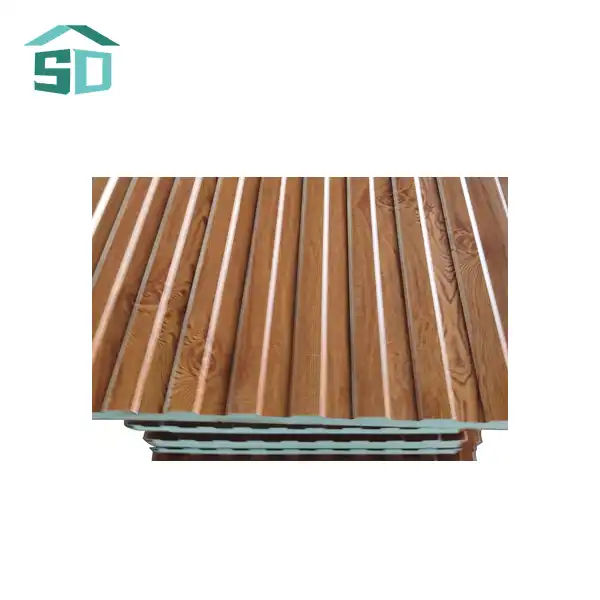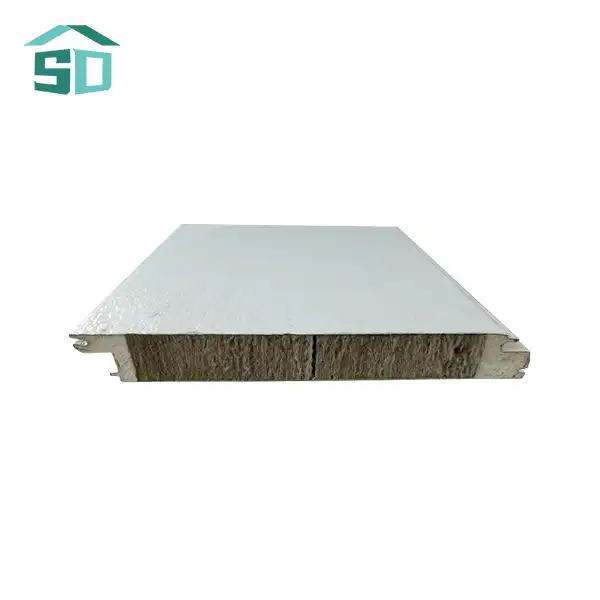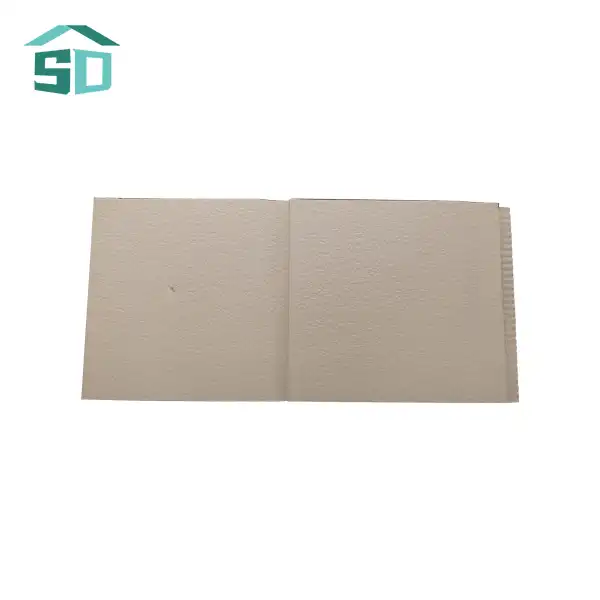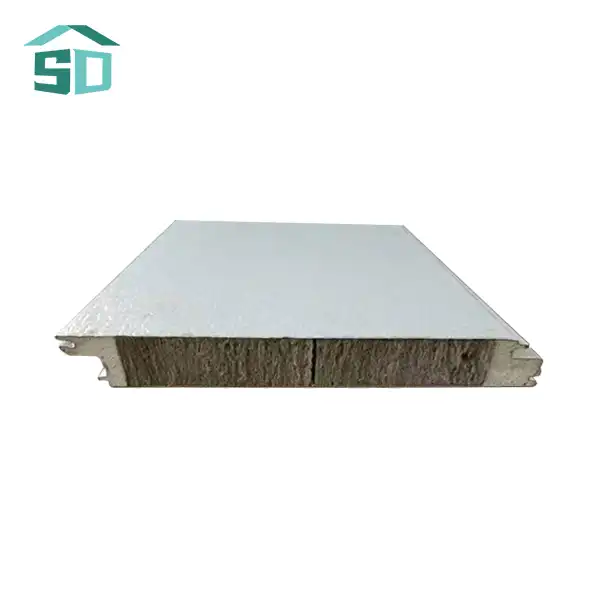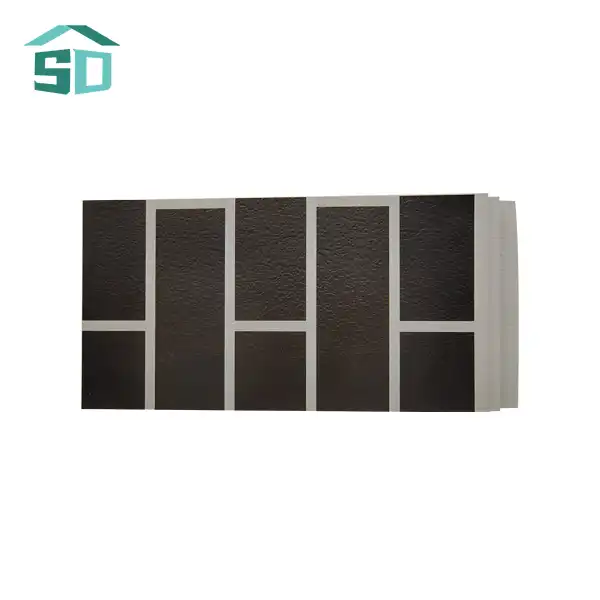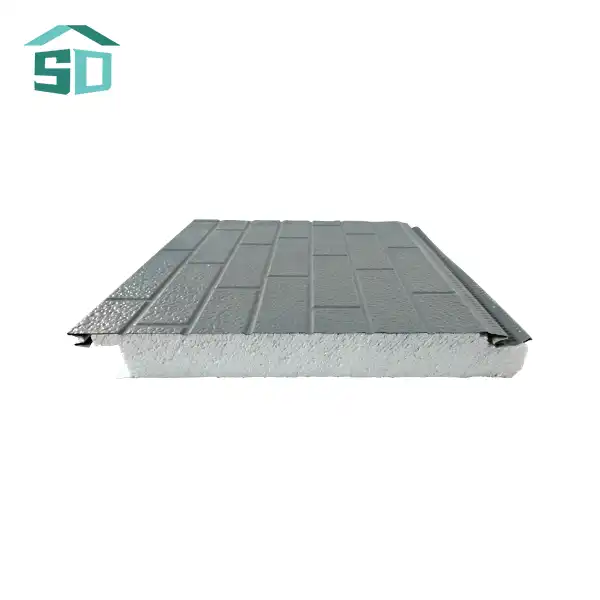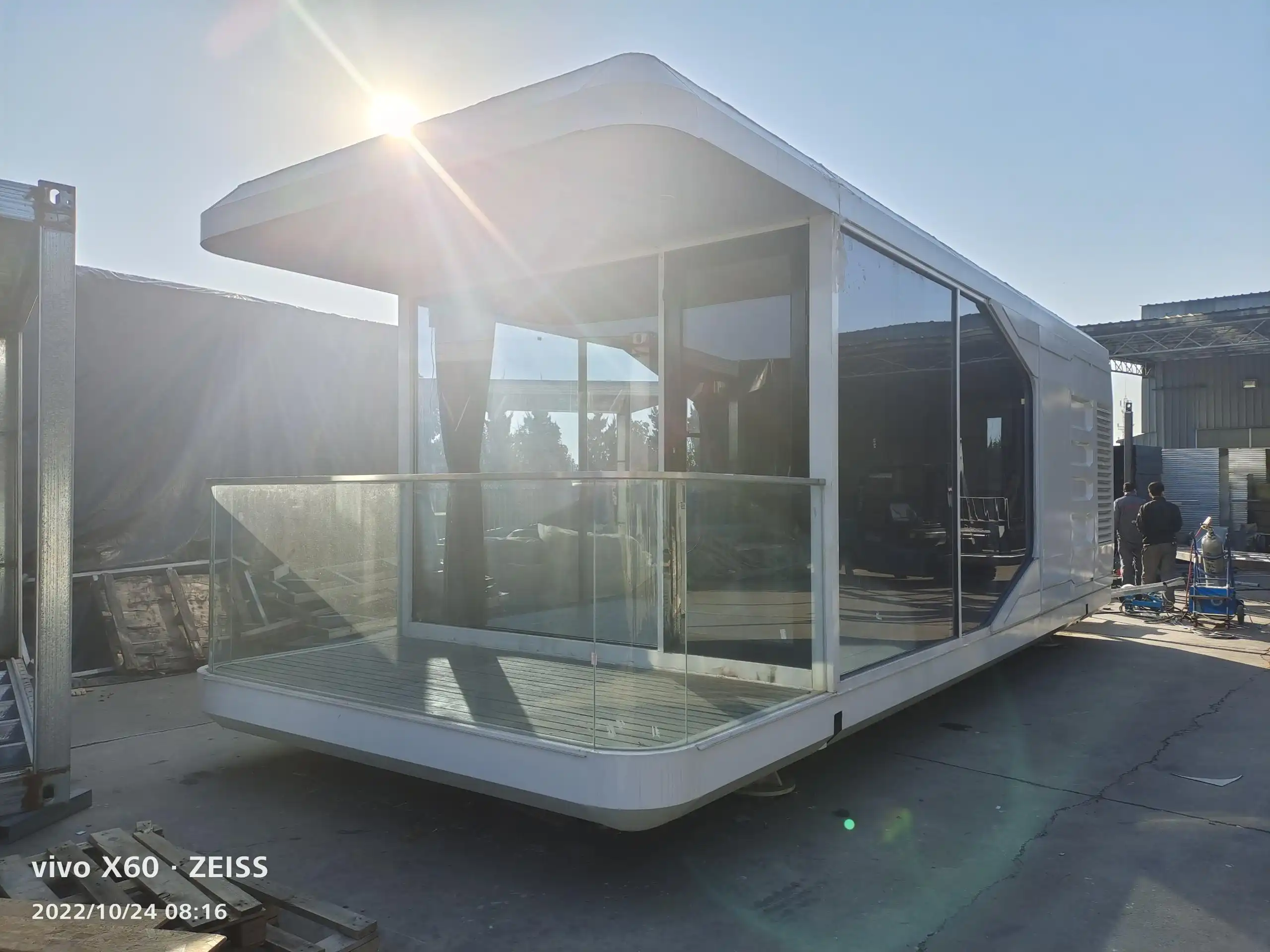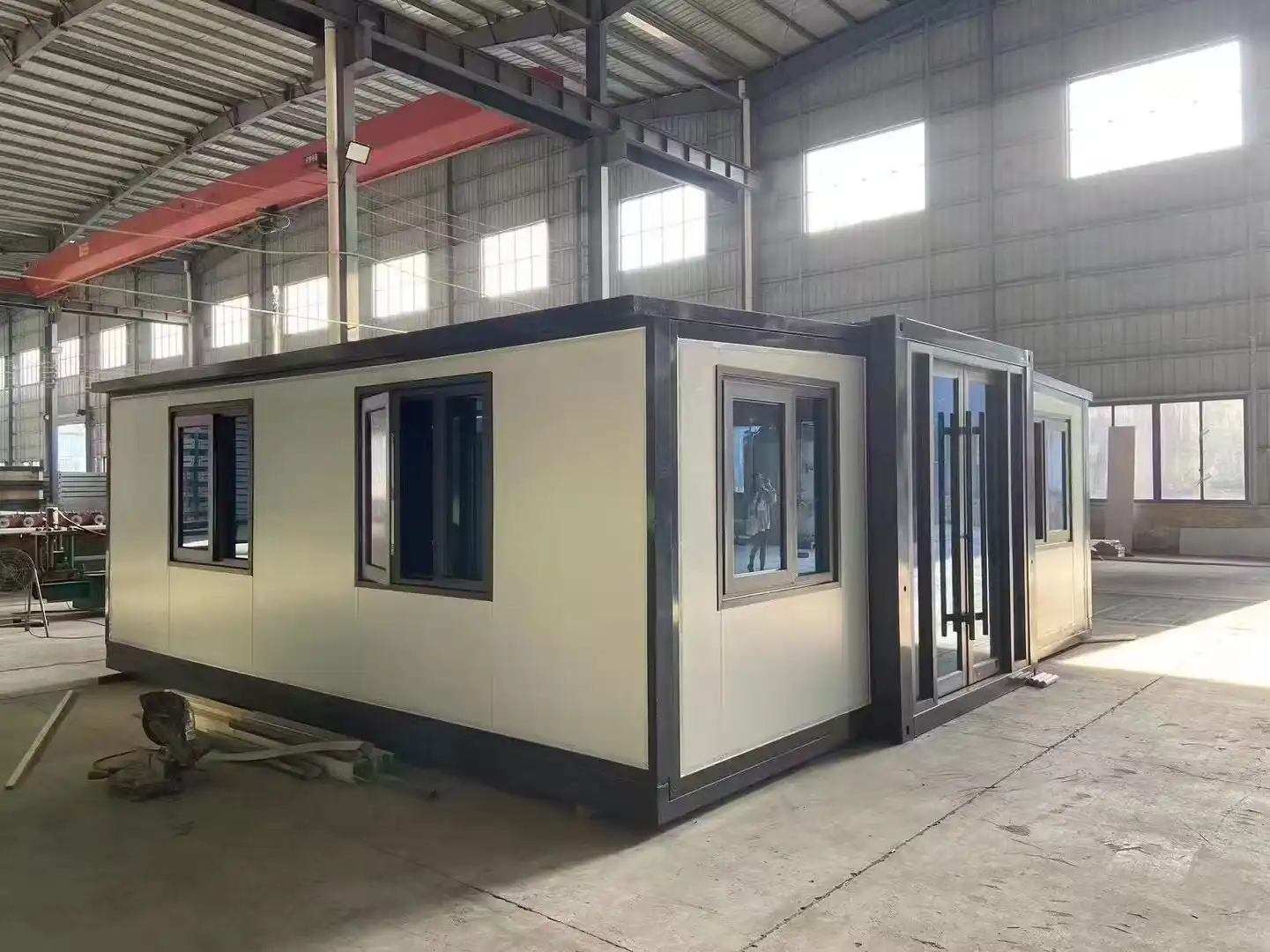Unparalleled Durability and Weather Resistance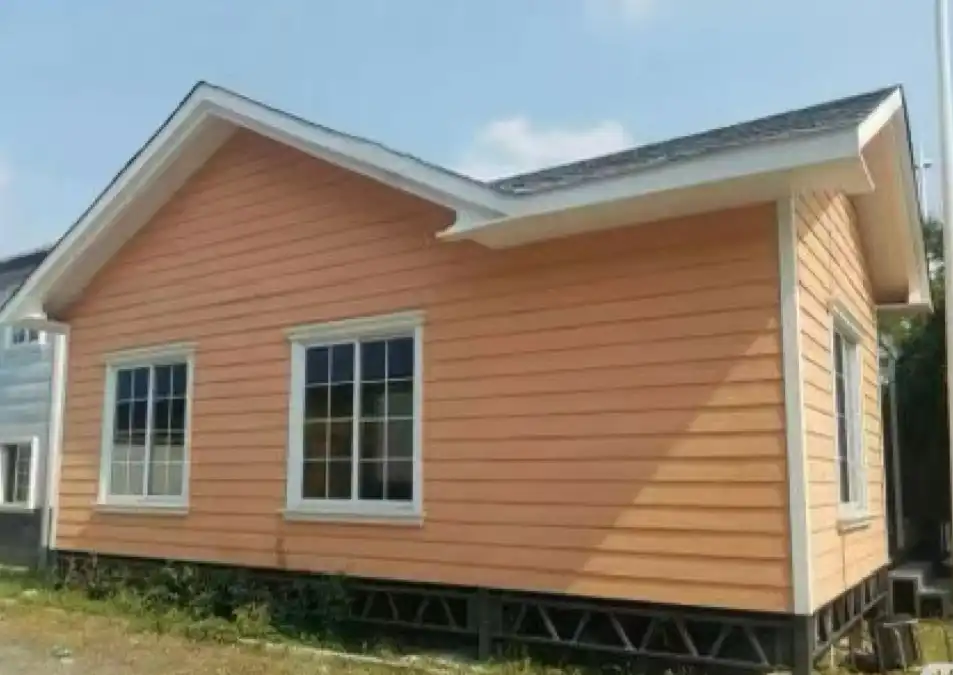
When it comes to protecting mobile homes from the elements, aluminum metal siding emerges as a formidable contender. Its inherent properties make it exceptionally resistant to various environmental factors, ensuring that your mobile home remains safeguarded year after year.
Corrosion-Proof Excellence
One of the standout features of aluminum metal siding is its remarkable resistance to corrosion. Unlike some other materials, aluminum naturally forms a protective oxide layer when exposed to air, effectively shielding it from rust and deterioration. This self-healing property ensures that your mobile home's exterior remains intact and attractive, even in harsh coastal environments or areas with high humidity.
The corrosion-proof nature of aluminum mobile home metal siding offers significant long-term advantages for homeowners. By preventing rust-related damage, it reduces the need for frequent repairs or replacements, thereby lowering maintenance costs and effort over time. This durability is especially important for mobile homes, which often face varying climatic conditions as they are relocated or moved.
Withstanding Extreme Weather Conditions
Mobile homes are frequently exposed to a wide range of harsh weather conditions, including extreme heat, cold, heavy rainfall, and strong winds. Aluminum metal siding handles these environmental stresses effectively. Its sturdy build resists wind damage, maintaining its form and attachment, and adds an extra layer of defense to the home's exterior.
Moreover, aluminum siding's resistance to moisture prevents issues like rot, mold, and mildew, which can be problematic with some other siding materials. This moisture resistance is crucial in maintaining the integrity of your mobile home's walls and preventing potential health hazards associated with mold growth.
The ability of aluminum siding to expand and contract with temperature changes without cracking or breaking further enhances its weather resistance. This flexibility ensures that the siding remains intact and functional across a wide range of temperatures, making it suitable for mobile homes in various climates.
Energy Efficiency and Thermal Insulation
In the realm of mobile home construction and renovation, energy efficiency has become a paramount concern. Aluminum mobile home metal siding emerges as a superior choice in this regard, providing notable benefits in thermal insulation and overall energy performance.
Reflective Properties for Temperature Control
Aluminum's natural reflective properties play a crucial role in maintaining comfortable temperatures inside mobile homes. The metal's ability to reflect a substantial amount of solar radiation helps prevent excessive heat gain during hot summer months. This reflective quality can significantly reduce the cooling load on air conditioning systems, potentially leading to lower energy bills and a smaller carbon footprint.
During colder seasons, the reflective nature of aluminum siding can also help retain heat within the mobile home. By reflecting internal heat back into the living space, it assists in maintaining a warm and cozy environment without overworking heating systems.
Enhanced Insulation Capabilities
While aluminum itself is not an insulator, modern aluminum metal siding for mobile homes often comes with integrated insulation materials. These composite systems typically incorporate materials like polyurethane, polystyrene, or rock wool, enhancing the overall thermal performance of the mobile home's exterior envelope.
The insulation materials used in conjunction with aluminum siding can vary in thickness from 26 to 29 gauge (0.018 to 0.035 inches), providing flexibility in achieving desired insulation levels. This added insulation layer helps in reducing heat transfer through the walls, contributing to a more stable and comfortable indoor environment regardless of outdoor temperature fluctuations.
By pairing aluminum's natural reflectivity with added insulation layers, the siding creates a strong thermal shield. This integration boosts energy performance while also improving indoor comfort, ensuring a more livable environment across all seasons.
Aesthetic Versatility and Low Maintenance
In addition to its practical advantages, aluminum metal siding provides mobile homeowners with numerous stylistic choices, all while requiring very little upkeep. This blend of visual appeal and ease of care makes it a smart solution for those aiming to improve the exterior look of their mobile homes without taking on heavy maintenance expenses.
Customizable Designs and Colors
Aluminum mobile home metal siding providesan extensive range of design possibilities, allowing mobile homeowners to personalize their living spaces according to their tastes and preferences. Available in various colors, textures, and finishes, aluminum siding can mimic the look of other materials like wood or stone, offering aesthetic versatility without compromising on durability.
The customization options extend to the surface treatment of the aluminum siding. Homeowners can choose from painted, coated, or anodized finishes, each offering unique visual appeal and additional protection against the elements. This versatility ensures that aluminum siding can complement any architectural style or personal preference, from traditional to contemporary designs.
With standard widths of 36 inches and custom lengths available up to 20 feet, aluminum siding panels can be tailored to fit the specific dimensions of any mobile home. This flexibility in sizing contributes to a seamless and professional-looking installation, enhancing the overall aesthetic appeal of the structure.
Minimal Maintenance for Long-Term Beauty
One of the most compelling advantages of aluminum mobile home metal siding for mobile homes is its low maintenance requirements. Unlike some other siding materials that may need regular painting or sealing, aluminum siding retains its appearance with minimal effort.
The durable nature of aluminum, combined with advanced surface treatments, ensures that the siding remains vibrant and attractive for years. Most aluminum siding products come with warranties of up to 25 years, attesting to their longevity and resistance to fading, peeling, or chipping.
Routine maintenance typically involves nothing more than occasional cleaning with soap and water to remove dirt or debris. The low maintenance demands reduce both time and labor involvement, while also offering lasting financial benefits by removing the need for repeated repainting or replacement over the years.
The low maintenance nature of aluminum mobile home metal sidingis particularly beneficial for mobile homes, which may be subject to relocation or varied environmental conditions. Its ability to maintain its appearance and integrity with minimal intervention makes it an ideal choice for homeowners seeking a hassle-free exterior solution.
Conclusion
For mobile homeowners, aluminummobile home metal siding presents a compelling option thanks to its unique combination of strength, thermal performance, and design flexibility. Its natural ability to resist corrosion provides reliable protection across a range of environmental conditions, helping to maintain the home's exterior over the years. Additionally, the material supports better indoor temperature regulation, which can lead to increased comfort and potential savings on energy costs.
Aluminum siding also offers a broad array of customizable finishes and styles, giving individuals the freedom to match their exterior preferences without compromising structural integrity or performance. Thanks to its minimal maintenance needs and impressive longevity, aluminum siding remains a practical and cost-effective upgrade for enhancing both the look and efficiency of mobile homes.
For those seeking to explore high-quality aluminum metal siding options for their mobile homes, Weifang Sandong Building Materials Co., Ltd. offers expertise and a wide range of products to meet diverse needs. To learn more about our exterior cladding and facade solutions, please contact us at info@sdqsc.com.
References
1. American Society for Testing and Materials (ASTM). (2018). Standard Specification for Aluminum and Aluminum-Alloy Sheet and Plate (ASTM B209-14). ASTM International.
2. Mokhtari, M., & Asadi, I. (2020). Thermal performance of metal claddings in residential buildings: A comparative study. Energy and Buildings, 209, 109699.
3. Aluminum Association. (2019). Aluminum in Green Buildings: A Guide to Environmental Declarations. Washington, D.C.: The Aluminum Association.
4. Yazdani, S., & Fazel, A. (2017). Moisture Resistance of Building Materials: A Case Study on Metal Sidings. Journal of Building Physics, 40(5), 431–445.
5. Kibert, C. J. (2016). Sustainable Construction: Green Building Design and Delivery (4th ed.). Hoboken, NJ: Wiley.
6. Gentry, R. (Ed.). (2015). Durability of Building Materials and Components. Springer.
